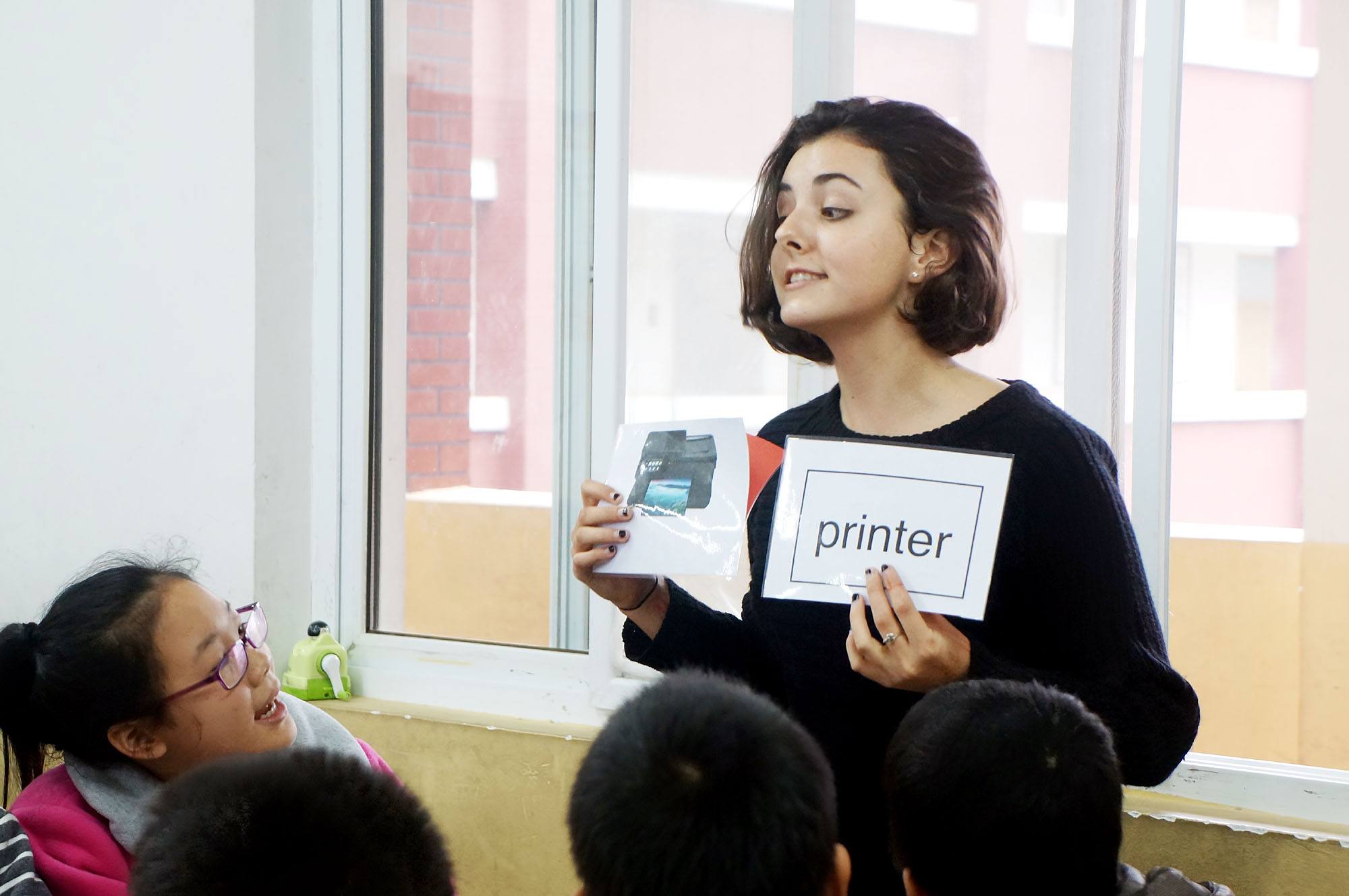幼儿英语外教有什么优点?
一、英语教学思维西方化
1. Westernization of English Teaching Thinking
英语外教一对一学习都是先经过大量的听,然后就会说了,孩子会模仿英语外教的语音与词语及句型的运用,宝贝们或许根本不知道语法原理,但是凭借语言感觉却会形成英语思维,知道怎么用英语清楚地表达。
English foreign teachers learn one-to-one through a lot of listening, and then they will say, children will imitate the use of English foreign teachers'pronunciation and words and sentence patterns, babies may not know the grammar principle at all, but relying on language feeling will form an English thinking, know how to express clearly in English.
二、让孩子敢于开口说英语
2. Let children dare to speak English
现在很多孩子从小就会说非常多的英语单词,他们可以和中教老师流利地说英语单词,但当面对英语外教的时候,他们害羞不敢说,害怕自己说错,这是一种学语言的心理障碍,要敢于和所有人用英语进行交流,所以幼儿英语外教课程学习很有必要。
Nowadays, many children can speak a lot of English words when they are young. They can speak English words fluently with middle school teachers. But when faced with foreign teachers, they are shy and afraid of making mistakes. This is a psychological barrier to learning a language. They should dare to communicate with everyone in English, so children's English is very important. It is necessary for foreign teachers to learn the course.
三、听说能力飞速提升
3. Rapid Improvement of Listening and Speaking Ability
语言的目的在于交流,通过天天与外教一起训练语言,进行日常生活沟通,孩子不仅能快速消除面对外教的压力,敢于开口交流,还能在外教的影响下自然而然地学会地道的英语,提高英语水平,特别是口语和听力水平。
Language aims at communication. By training language with foreign teachers every day and communicating with them in daily life, children can not only quickly eliminate the pressure of facing foreign teachers and dare to open their mouth to communicate, but also naturally learn authentic English under the influence of foreign teachers and improve their English level, especially their oral and listening abilities.
四、从小就学会标准发音
4. Learning standard pronunciation from an early age
语言靠的是环境营造,当孩子看见中教老师,他们会选择自己擅长的中文交流,但如果是一个不懂中文的外教老师与孩子交流,孩子们会无形中运用任何表达方式与外教沟通,这就让孩子主动去学。相反,外教老师的发音,说话语音语调,词语固定搭配等都会潜移默化地影响孩子的英语学习。
Language relies on environment construction. When children see a middle school teacher, they will choose the Chinese language communication they are good at. But if a foreign teacher does not know Chinese to communicate with the child, the children will invisibly use any expression to communicate with the foreign teacher, which will let the child take the initiative to learn. On the contrary, the pronunciation, intonation and fixed collocation of foreign teachers will exert a subtle influence on children's English learning.











